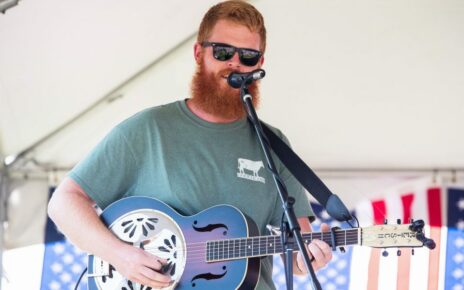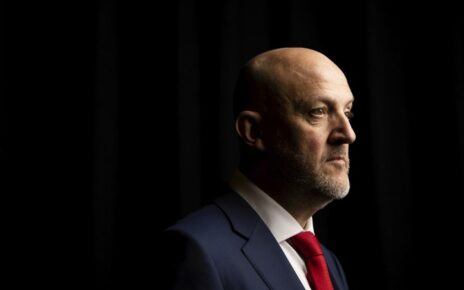It was a leap of faith.
When Isabelle Huppert started working with Jean-Luc Godard on 1980’s “Every Man for Himself,” there wasn’t a script for her to consult.
“There were only fragments of scenes, poems, songs and paintings,” she remembers. “I simply knew my name in the film was Isabelle.
But Godard was a legend at that point, having helped pioneer the French “New Wave” movement with the likes of “Breathless” and “Contempt” and then undertaken an even more daring and experimental phase in films such as “Weekend” and “Masculin Féminin.” Something about their partnership worked. “Every Man for Himself,” was a rare commercial success for the auteur, and marked a milestone in Godard’s career as the the first movie he presented in competition at Cannes and the first which was nominated at the Cesar Awards (France’s highest film honors). Huppert would reunite with Godard for his follow up movie “Passion,” another acclaimed film, presented him with an honorary Cesar Award in 1987. Godard died on Sept. 13 at the age of 91, and Huppert spoke with Variety about her artistic collaborations with the filmmaker and his legacy.
Did he give you a script?
Oh no, there was no script with Jean-Luc Godard. Nothing was happening as it usually does. There were only fragments of scenes, poems, music and paintings. I simply new my name in the film was Isabelle.
How did you meet Jean-Luc Godard?
Our first encounter was on the phone. He called me and said he wanted to meet me for a film. A few minutes later, literally, he was in my home to talk to me about this film.
The first film we did together, “Every Man For Himself” was a movie he liked to call his ‘second first film.’ It was for him a comeback to a more classical form, if we can even use this adjective to talk about Godard. But it came after a long period during which he was doing more experimental work, more political work as well.
What happened then?
Later, he came to visit me in Montana where I was filming “Heaving’s Gate” (directed by Michael Cimino). The shooting was dragging on a bit and so Jean-Luc Godard traveled there to maintain a bond, see me and talk, because time was passing.
Where you eager to work with him before he even approached you with this project?
Yes, of course. Sharing a moment in one’s life as an actress with Jean-Luc Godard is an exceptional experience. I would certainly have not wanted to miss that. I did two films with him and they were special moments in my life.
What memory do you keep of making “Every Man For Himself”?
I remember moments but not one in particular. He would make us talk in a certain manner in his films and we always ended up talking a bit like him. He had a particular way of speaking. He was in fact very directive, very precise — he wanted us to deliver some lines with a certain tone, to make them sound a bit like quotes or oracles. So that they were resonate more than simple lines in a dialogue. It was a way to give some weight to what we were saying. So I remember this exigency from him.
Did you get to improvise while filming?
No, there wasn’t the smallest bit of improvisation in a film by Godard. He knew what he wanted. He’s not someone who had the least hesitation. In any case, that’s the impression he gave to others. I can imagine that in his mind, it was perhaps more uncertain. I rewatched a a video in which he said, “knowing is not important.” So I’m not sure he would have liked me saying that he knew what he wanted!
You worked with him again on “Passion.” I read that he made you stutter and that you even had to visit speech doctor a few times.
Yes, he wanted me to stutter because he thought the working class stuttered. At first I thought it was a bit violent. I didn’t do it on every scenes, but I did it on some. It was a conceptual way to show the difficulties that the working classes faces and put me in this position of fragility and vulnerability.
Did he give you homework during filming?
Yes, he wanted us to give him ideas, to write down things that crossed our mind. I found it amusing, and at the same I thought he had enough ideas himself.
He would always say he liked thinking and he liked seeing people who think in films. He gave me this compliment one day, and said that I looked like someone who thinks. It was obviously very flattering.
His films almost always had a political resonance. Why is an important aspect for you?
Like any great artist, he was political in the way he made films. He disrupted the narration, the linear form of traditional storytelling, the editing. The form of his films was so daring and innovative that it was political. And that’s why he became Jean-Luc Godard.
He also made some movies that were more overtly political than others. He made some statements that were highly political, too. For instance at the Cannes Film Festival where he said that the working class was under-represented in French movies.
What do you think of the last few movies he directed?
I find them as overwhelming, interesting and premonitory as ever. Until the end, he questioned. He was a visionary. That’s why we’re all a bit like orphans now that he’s gone.
Read More About:
Source: Read Full Article


